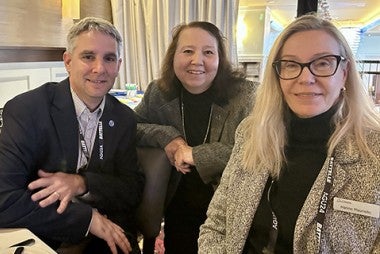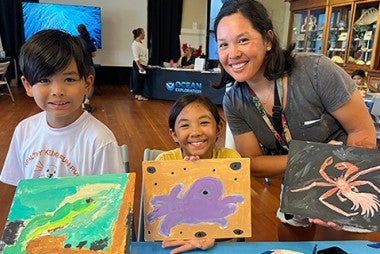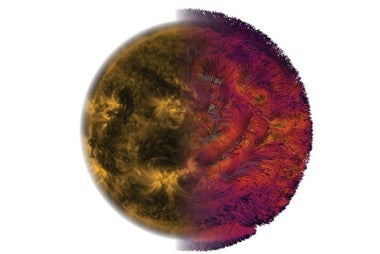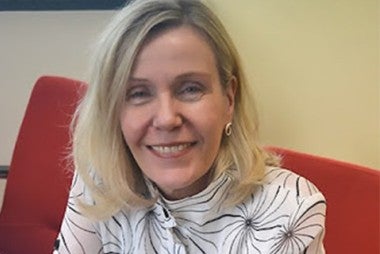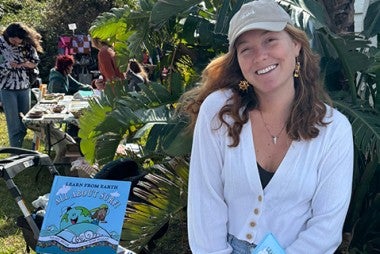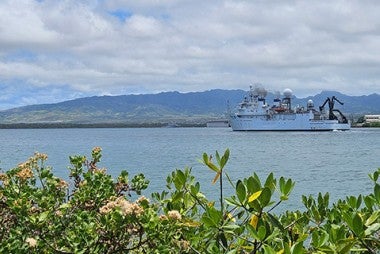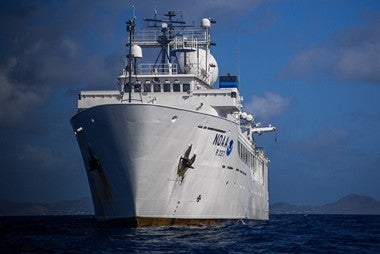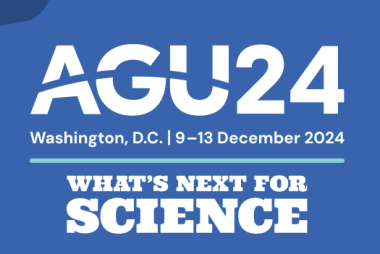US CLIVAR Summit & Upcoming Activities
One of the unique things that SPS | CPAESS does is host important scientific programs with critical focuses that are supported by numerous agencies. The US Climate Variability and Predictability Program (US CLIVAR) is one such program. US CLIVAR is a national research program with a mission to foster understanding and prediction of climate variability and change on intraseasonal-to-centennial timescales, through observations and modeling with emphasis on the role of the ocean and its interaction with other elements of the Earth system, and to serve the climate community and society through the coordination and facilitation of research on outstanding climate questions.
Their research notes the critical role that the ocean plays in providing a major long-term "memory" for the climate system, and generating or enhancing variability on a range of climatic timescales. Understanding the ocean's role in climate variability is therefore crucial for quantifying and harnessing the predictability inherent to the Earth system. US CLIVAR-led research has played a substantial role in advancing understanding of, and skill in predicting climate variability and change.
This summer, the US CLIVAR Summit was held in Seattle, Washington by invitation only. Its purpose was to bring together the members of the Scientific Steering Committee and its three implementation Panels, agency managers, and invited speakers to review progress, identify opportunities, and develop strategies to advance US CLIVAR goals under the direction of the Science Plan. About 60 people were in attendance, including approximately 30 virtual attendees.
Leading up to the Summit, a webinar series featured updates from the US CLIVAR working groups. The first day of the meeting had plenary sessions attended by panelists, the Scientific Steering Committee, and agency managers. The second and third days featured panel breakout sessions where each panel will discuss a different subject. Some of these sessions were held jointly between two panels. Each panel reported out on their discussions to the plenary group on the third day to close the meeting. These sessions and breakouts were broadcasted online for those invitees who are unable to attend in-person. The plenary sessions included: Climate and humans: Impacts of recent heat extremes in the Pacific Northwest; Addressing indigenous peoples' climate information needs; and Persistent model biases in the Southern Ocean and their impacts.
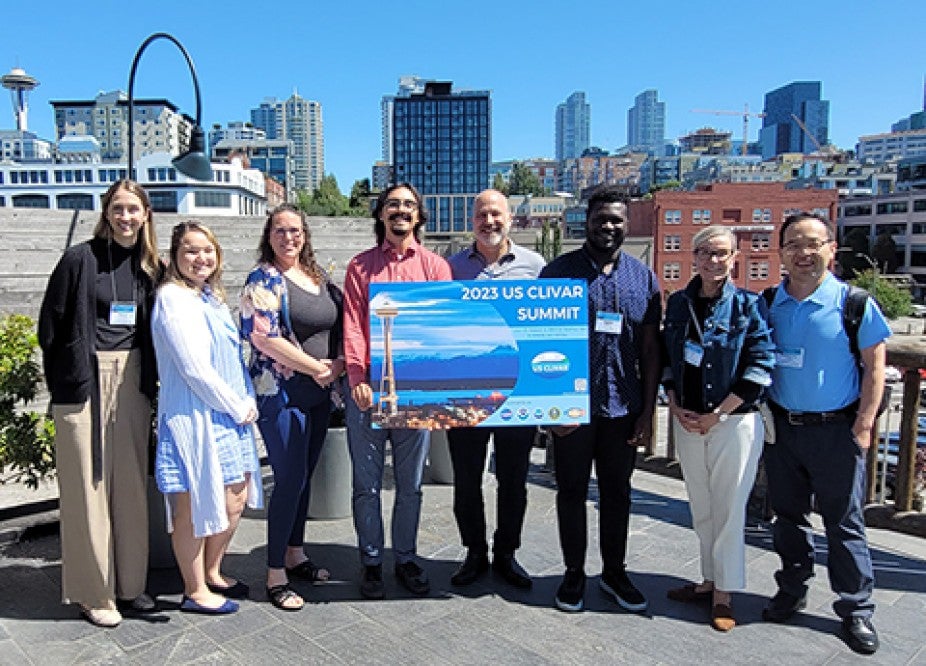
CPAESS Staff from left to right: CPAESS | CLIVAR Program Specialist Alyssa Johnson, CPAESS | CLIVAR Program Specialist Alyssa Cannistraci, CPAESS Event Planner Jessica Martinez, CPAESS | CLIVAR Program Specialist Sam Coakley, CLIVAR Project Director Mike Patterson, CPAESS Program Specialist (at NOAA CPO) David Benson, SPS | CPAESS Director Hanne Mauriello, and CPAESS Project Scientist (at GFDL) Baoqiang Xiang.
It was an excellent summit which enabled participants to share their research and innovate together on potential future solutions. It also allowed CLIVAR colleagues to meet new CPAESS Program Specialists Alyssa Johnson and Alyssa Cannistraci; as well as send off Sam Coakley who has served US CLIVAR well for the past 2 years.
US CLIVAR has numerous opportunities to engage with them coming up including:
- Now open is the fall call for US CLIVAR-Sponsored Working Groups! We are now accepting prospectuses for new Working Groups through October 10, 2023. Groups supported from this year's call will be initiated early 2024 and undertake actionable and measurable tasks over a 2–3 year period. Find out more here.
- See them at World Climate Research Programme Open Science Conference from October 23, 2023 - October 27, 2023 in Kigali, Rwanda and virtually as they moderate several sessions.
- The newly published US CLIVAR Report, “A New Paradigm for Observing and Modeling of Air-Sea Interactions to Advance Earth System Prediction,” details technological needs and capabilities and presents key strategies to advance Earth System prediction by harnessing predictability in the Air-Sea Transition Zone. Roadmaps for four strategies outline actions to be undertaken by the research community in the next two, five, and ten years to implement a new Air-Sea Transition Zone observing-modeling system.
- The Polar Amplification of Climate Change Across Hemispheres and Seasons: Causes and Constraints workshop, January 17-19, 2024 in Boulder, CO. This meeting will bring together Arctic and Antarctic scientific communities to elucidate the asymmetries in the polar responses to anthropogenic climate change and identify actions to reduce projection uncertainties.
- The Confronting Earth System Model Trends with Observations: The Good, the Bad, and the Ugly workshop, March 13-15, 2024 in Boulder, CO. This workshop will compare historical trends in Earth system models with observations to identify and understand where models are performing well and poorly to focus the community on where more work is needed to ensure credible projections moving forward.
